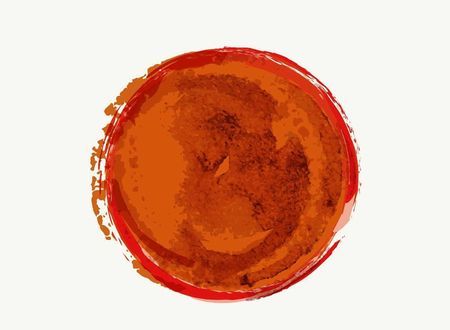What to do when the other person evokes anger in you even when you are not at fault? This is a frequently asked question. Let me begin with a famous Zen anecdote based on the teachings of Chuang Tzu.
Like some are crazy (yes, crazy) about their cars and gadgets, there was one who loved his boat. Every Sunday, he would clean it, take it out on the lake, bring it back and clean it yet again. He wouldn’t let his missus or children touch it, not even for cleaning it. One time, before the onset of winter, he spent four weekends painstakingly painting his boat which looked as good as new now.
He stood there admiring his prized possession and couldn’t resist the desire to go for one last ride of the season. Winter was fast approaching and it was a foggy day, yet he went ahead and untethered the boat. Enjoying the rustic smell of the mist and the refreshing chill caressing his face, sailing over the quiet waters and looking at the dewy trees, he carefully steered through the fog. The soft light of the morning sun was absorbed by the dense fog, birds were intermittently tweeting at nearby and distant spots.
He was enjoying every moment in his lovely boat, away from the maddening crowd. No one to bother him. Just him and his sparkly baby, newly painted, in a blue lake, on a quiet morning.
Thud, something hit his boat. Not stopping, it was another boat that rubbed against his and scratched a chunk of its surface. A range of intense emotions starting from disbelief to rage surged through his body. How could this man be so dumb? Why did he have to spoil my perfect morning? Why do all turds come to me?
Singed with anger, he yelled, “Where the hell you think you are going, dumbass?!”
No response came from the other boat. This made him even more livid. All the cussing he could not do out loud, he did within and shouted one more time. Still, no one answered back. He looked closely and realized, there was no one in the other boat. It was an old, abandoned and empty boat that had just drifted his way.
He had a realization. All this while he thought the person in the other boat was responsible for his anger. Whereas, there was no other person. An empty boat had triggered anger in him. This anger was in him all along, something externally merely ignited it.
From the parable of The Empty Boat by Chuang Tzu, I quote an excerpt:
If a man is crossing a river
And an empty boat collides with his own skiff,
Even though he be a bad-tempered man
He will not become very angry.
But if he sees a man in the boat,
He will shout at him to steer clear.
If the shout is not heard, he will shout again,
And yet again, and begin cursing.
And all because there is somebody in the boat.
Yet if the boat were empty.
He would not be shouting, and not angry.If you can empty your own boat
Crossing the river of the world,
No one will oppose you,
No one will seek to harm you.
“If you can empty your own boat… no one will seek to harm you.” I know, I know, it’s easier said than done. Then again, it’s not impossible though.
Elsewhere I wrote that anger arises when somewhere you are hurt within. Different people express their pain differently. Some shout, some withdraw. Some forgive, some forsake. Some fret, some forget. These are individual choices, personal matters. Your choice is entirely in your hands. Bear in mind though if you are going to yell in anger or keep harboring it inside you, it’ll gradually destroy your goodness like rust destroys iron. And, when your inherent goodness is gone, you have no hope of being at peace.
An angry person may have whatever opinion about himself or herself, deep inside though, they suffer from a lack of self-esteem. And believe it or not, your sense of self-esteem is directly proportional to your degree of selflessness. The more selfless you are, the stronger you will be. And the stronger you are, the greater your self-esteem. Only someone with high self-esteem can be calm. It is much easier for such a person to direct his or her energy in a more productive way than to shout and get mad.
Therefore, one good way to rise above anger is to build your self-esteem. And, you can do that by serving someone or some cause, by doing selfless service. Even every tiny random act of kindness is a mighty deposit in your account of self-worth. This is the inward journey of conquering yourself. You help others and you help yourself.
The more you look within for answers to your emotions, the less you hold others responsible for your feelings. They will still come and slam into you, but you learn to look upon them as empty boats. They are just drifting. No doubt, you may still feel bad or off when they spoil your paint job, when they damage your carefully-protected belongings. Yet, this doesn’t mean they will also evoke anger in you. And this calls for a subtle distinction I must elucidate right away.
You see, not being angry doesn’t mean you don’t get hurt. Living in our world, it’s impossible not to get hurt by our loved ones. It will happen. That is not in your hands. If someone hits you with a stick, you will feel the pain. How you choose to respond though is what differentiates a good person from a great one. You may choose to take away their stick, distance yourself from them, yell at them, hit them back or even love them in return.
Other than being hurt, there is, however, one more cause of anger. No one likes to hear it but a closer diagnosis of the world will clearly reveal it to you. It is self-obsession. The more obsessed you are with yourself, the angrier you get at the slightest conflict. Self-obsessed people take themselves very seriously. Whether it be their life, religion or their opinions, everything is a serious matter for them. These are the ones who, even after seeing an empty boat, will keep yelling and cursing at the one who abandoned that boat in the first place. A self-obsessed person does not know what to do with his or her anger. Once again the antidote is going beyond your individual existence and embarking on a journey greater than the sum total of one’s selfish desires.
Mulla Nasrudin moved to a new town and needed some financial assistance. Nobody would lend him any money though. Dejected, he was sitting outside the mosque when he struck up a conversation with a stranger.
A few minutes into the chat and Mulla asked, “So, how’s business?”
“Couldn’t be better!” the man said.
“Can I borrow fifty dollars then?”
“Fifty dollars?” he exclaimed. “No way! I don’t even know you.”
“That’s strange,” replied Nasrudin. “In the previous village, people wouldn’t lend me money because they knew me. And here, no one lends me because they don’t know me.”
It’s the same with anger. Some will take the liberty to snub you, shout at you, to be angry with you because they know you. They know that you will accept such behavior. And some will be mad at you because they don’t know you. They are looking at you through their own filter. At any rate, let it not bother you beyond a reasonable point because it’s not about you, it’s about them. So long as you are not ‘them’, you are good.
I once read a quote that said, “Open your mouth when what you have to say is more beautiful than silence.” This pretty much sums up the best way to ascertain how best to express your displeasure. Every little thing we do, say or think, every thought we brood over, every emotion we harbor adds to the weight. You may not be able to empty your boat entirely, but don’t keep it overloaded either. Heavy objects sink faster. Really, it’s that simple. Be light, be free.
Peace.
Swami
A GOOD STORY
There were four members in a household. Everybody, Somebody, Anybody and Nobody. A bill was overdue. Everybody thought Somebody would do it. Anybody could have done it but Nobody did it.
Don't leave empty-handed, consider contributing.It's a good thing to do today.









Comments & Discussion
8 COMMENTS
Please login to read members' comments and participate in the discussion.